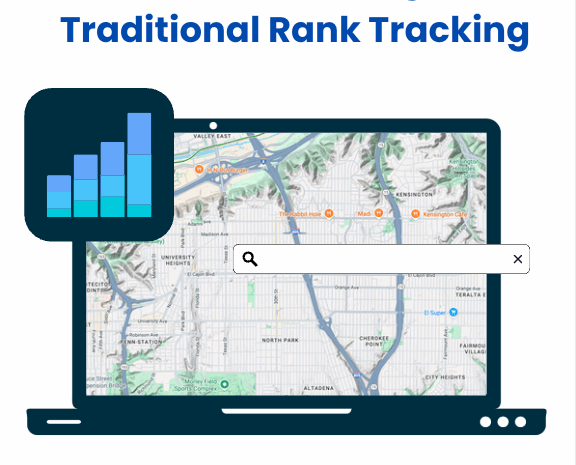Traditional search has never been static, but today, it’s not just changing but it’s being rewritten by the use of AI-Powered Search.
Consumers are no longer asking search engines what to do. They’re asking AI agents to decide for them and make their life easier. From ChatGPT and Gemini to Copilot and Perplexity, generative search is no longer a fringe behavior, it’s a mainstream habit forming at scale.
If you manage SEO for multi-location brands, this is a foundational change in how your clients get discovered, evaluated, and recommended. And it’s happening faster than expected. Adapting is a key part for continuing in business and reaching success.
Here’s what the current data shows about AI-Powered Search:
- 41% of Gen Z and Millennials already use generative search tools like ChatGPT for brand and product discovery (HubSpot, 2024).
- Perplexity and You.com saw triple-digit growth in monthly active users in Q1 2025.
- Google’s own AI Overviews (formerly SGE) are now appearing for ~35% of all search queries.
But this isn’t just about which engine consumers use, it’s about how they think about search.
Where once the goal was to sift through 10 blue links, today’s consumer wants a single, contextualized, summarized and confident answer, ideally with sources, pros/cons, and alternatives built in… which does not feel like a query but a conversation.
Consumer Trust in AI Content: Evolving but Selective
Contrary to early fears, consumers aren’t blindly trusting everything AI says. But they are trusting it faster than most brands realize.
What Consumers Trust AI For:
- Fast comparisons (“Best CRM for small business under $50/month”)
- Summary-based decisions (“What are the top-reviewed dentists in Chicago?”)
- Recipe-style queries (“3-step process to clean marble floors”)
- First-pass research (“How do I verify my business on Apple Maps?”)
What They Don’t Trust Yet:
- Medical/legal guidance without sources
- High-stakes financial decisions
- Hyper-personal or emotional topics
- Product reviews that don’t cite real users
In essence, consumers trust AI to curate the middle filter noise, compress insights, and recommend directionally correct answers, but this can only happen using the right prompts and making sure information is coming from trusted sources.
For local SaaS providers, this means AI search is becoming the new front door. And you need to make sure your clients are standing behind it.
What This Means for Multi-Location Brands
If your client operates 50, 500, or 5,000 locations, the fragmentation of AI search has a multiplying effect. Here’s how:
- A national brand may appear in a ChatGPT list for “best coffee chains,” but not for “iced latte near me in Boulder.”
- Google’s AI Overview might mention one local office but omit another that’s higher-rated, simply due to missing structured data.
- AI tools pulling reviews from Reddit, Yelp, or G2 may favor well-reviewed local locations over corporate-level profiles.
That means visibility is no longer about a single domain ranking well, it’s about ensuring each location’s data is AI-readable and citation-rich. But how can you do that?
Technical Actions SaaS Platforms Must Prioritize
To help your clients maintain discoverability in AI-powered search environments, your platform must evolve. Here’s where to focus:
1. Structured Data at Scale
Ensure every local page and profile is marked up with LocalBusiness schema, FAQ schema and Review markup (aggregateRating, itemReviewed)
APIs (like LDE’s) that generate this programmatically are key to managing thousands of variations.
2. AI Source Indexing
Most AI powered search engines cite public, crawlable sources. So:
- Reviews need to be published or syndicated (Yelp, Trustpilot, etc.)
- Owner responses should be frequent, informative, and structured
- Location pages must include service details, hours, and media(not just a name and address)
3. Monitor Mentions in AI Powered Search Interfaces
Platforms like Perplexity and ChatGPT often cite direct URLs, Reddit comments and Help docs or blog content.
Use tools or custom scripts to track brand and location mentions in AI summaries, similar to how you’d monitor SERP positions.
4. Ensure Consistency Across Listings
In AI-powered maps and search (e.g. Apple, Bing, Alexa), conflicting or missing data kills trust.
That means using real-time listings verification APIs, doing NAP consistency checks and programmatic review response publishing are key to success.
Consumers Are Changing, So Must the Platforms That Serve Them
The shift to AI-powered search is a consumer behavior trend, yes. But it’s also a technical mandate for platforms that manage visibility at scale.
Here’s what’s changing:
- Search is now multimodal (text + voice + visual + chat)
- Ranking is becoming contextual, not keyword-driven
- Discovery is answer-first, not click-first
As trust in AI content grows, the burden of proof falls on you, the SaaS provider, to structure data, syndicate trust signals, and scale contextual relevance in a way that your client’s information will show up for specific prompts.


